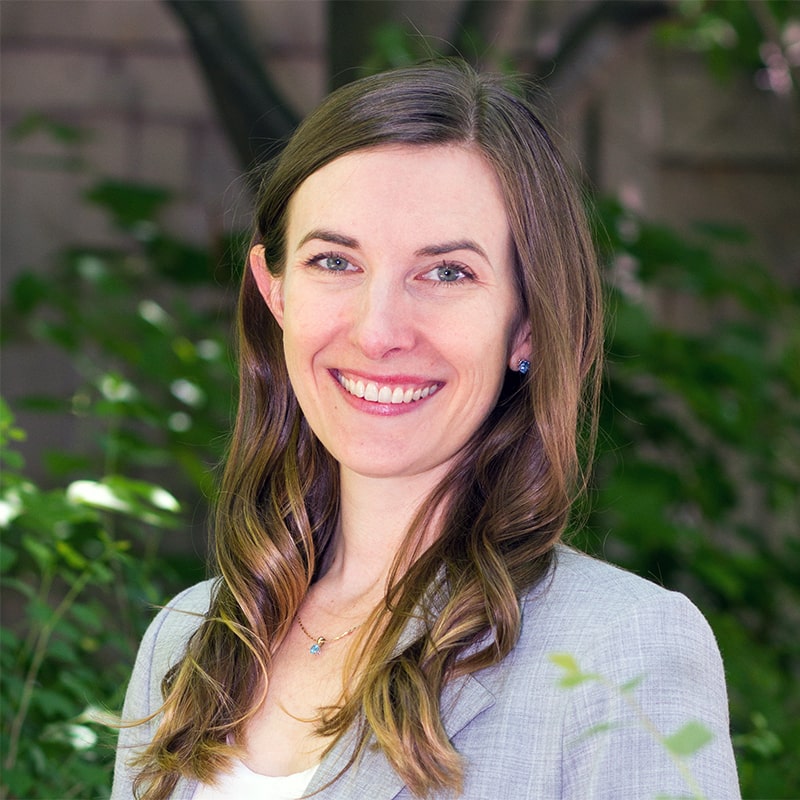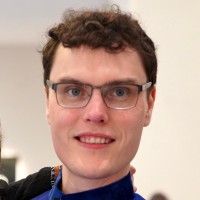October 11, 2024 | 1:30-2:30p.m. ET
 Gwendolyn Eadie (University of Toronto)
Gwendolyn Eadie (University of Toronto)
[Eadie Talk Recording] [Eadie Talk Slides]
Title: Studying the Universe with Astrostatistics
Abstract: Astrostatistics is a growing interdisciplinary field at the interface of astronomy and statistics. Astronomy is a field rich with publicly available data, but inference using these data must acknowledge selection effects, measurement uncertainty, censoring, and missingness. In the Astrostatistics Research Team (ART) at the University of Toronto --- a joint team between the David A. Dunlap Department of Astronomy & Astrophysics and the Department of Statistical Sciences --- we take an interdisciplinary approach to analysing astronomical data from a range of objects such as stars, old clusters, and galaxies. In this talk, I will cover three ART projects that employ Bayesian inference techniques to: (1) find stellar flares in time series data from stars using hidden Markov models, (2) investigate the relationship between old star cluster populations and their host galaxies using hurdle models, and (3) discover potential "dark" galaxies within an inhomogeneous Poisson Process framework.
Bio: Gwendolyn Eadie is an Assistant Professor of Astrostatistics at the University of Toronto, jointly appointed between the Department of Statistical Sciences and the David A. Dunlap Department of Astronomy & Astrophysics. She is the founder and co-leader of UofT's Astrostatistics Research Team, and works on a range of projects that use hierarchical Bayesian inference to study galaxies, globular star clusters, stars, and fast radio bursts. She is also the current Chair of the Astrostatistics Interest Group of the American Statistical Association and the Chair of the Working Group on Astroinformatics & Astrostatistics of the American Astronomical Society.
November 15, 2024 | 1:30-2:30p.m. ET
 STAMPS Webinar:
STAMPS Webinar:
Brendan Byrne (Qube Technologies)
[Byrne Talk Recording] [Byrne Talk Slides]
Title: Quantifying greenhouse gas emissions through atmospheric inversion systems
Location: Zoom
Abstract: Quantifying greenhouse gas sources and sinks from the atmosphere is essential for assessing the success of emission reduction efforts. Observations of atmospheric greenhouse gases have become major tools for tracking these fluxes. Because atmospheric transport links emissions to downwind concentration changes, this presents an inverse problem. In this presentation, I’ll introduce the general methodology for quantifying emissions, highlighting key successes and ongoing challenges. I’ll also provide an overview of diverse applications, from tracking emissions at individual facilities to monitoring trends on a global scale.
Bio: Brendan Byrne is a Senior Data Scientist at Qube Technologies, where he works on continuous monitoring of methane emissions. Previously, he was a Scientist at the NASA Jet Propulsion Laboratory (JPL), where he led research on the global carbon cycle and its implications for climate change. He is an expert on flux inversion analyses, where surface-atmosphere trace gas fluxes are estimated from atmospheric concentration data and holds a Ph.D. from the University of Toronto and both M.Sc. and B.Sc. degrees from the University of Victoria.
December 6, 2024 | 1:15-2:15p.m. ET
 STAMPS Hybrid Talk:
STAMPS Hybrid Talk:
David Shih (Rutgers University)
[Shih Talk Recording] [Shih Talk Slides]
Location: Wean 5409 + Zoom at 1:15 p.m.
Title: Searching for the Unexpected from Colliders to Stars with Modern Machine Learning
Abstract: Modern machine learning and generative AI are having an exciting impact on fundamental physics, allowing us to see deeper into the data and enabling new kinds of analyses that were not possible before. I will describe how we are using generative AI to develop powerful new model-agnostic methods for new physics searches at the Large Hadron Collider, and how these methods can also be applied to data from the Gaia Space Telescope to search for stellar streams. I will also describe how these same generative AI techniques can be used to perform a novel measurement of the local dark matter density using stars from Gaia as tracers of the Galactic potential.
Bio: David Shih is a Professor in the New High Energy Theory Center and the Department of Physics & Astronomy at Rutgers University. His current research focuses on developing new machine learning methods to tackle the major open questions in fundamental physics -- such as the nature of dark matter and new particles and forces beyond the Standard Model -- using big datasets from particle colliders and astronomy. His work has touched on many key topics at the intersection of ML and fundamental physics, including generative models, anomaly detection, AI fairness, feature selection, and interpretability. Shih is the recipient of an DOE Early Career Award, a Sloan Foundation Fellowship, the Macronix Prize, and the Humboldt Bessel Research Award.